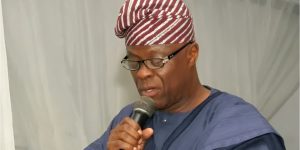
The Federal Government of Nigeria has revealed a projected budget deficit of N13 trillion for the 2025 fiscal year, which will be financed through both domestic and international borrowing. This was announced by Wale Edun, Nigeria’s Minister of Finance and Coordinating Minister of the Economy, following the approval of the N47.9 trillion 2025 budget by the Federal Executive Council (FEC).
The approved budget marks a 35% increase compared to the N35.5 trillion allocated in 2024. The significant rise underscores the administration’s focus on implementing an expansionary fiscal policy aimed at stimulating economic growth, tackling infrastructure deficits, and lifting millions of Nigerians out of poverty.
Key Budget Metrics:
1. Budget Size: N47.9 trillion.
2. Deficit: N13 trillion (3.87% of projected GDP).
3. Revenue Projections: Driven by oil and non-oil revenue streams, alongside government-owned enterprises’ contributions.
4. Borrowing Plan: The government plans to raise $2.2 billion through external borrowing, including a mix of Eurobonds and Sukuk bonds, to bridge the financing gap.
5. Debt Service: N8.25 trillion has been allocated to debt servicing, reflecting Nigeria’s growing debt obligations.
Economic Assumptions:
The 2025 Medium-Term Expenditure Framework (MTEF) projects key economic indicators:
GDP Growth: 4.6%.
Oil Price Benchmark: $75 per barrel.
Exchange Rate: N1,400 to $1.
Oil Production: 2.06 million barrels per day.
Key Priorities:
The budget prioritizes investments in infrastructure, education, and healthcare while enhancing support for high-employment sectors and social investment programs. Minister Edun emphasized that Nigeria’s economy has demonstrated resilience, citing improved revenue collection and growing investor confidence.
Funding the Deficit:
Edun noted that Nigeria will tap into international capital markets and explore domestic funding sources. The combination of external borrowing (e.g., Eurobonds) and local financing mechanisms reflects efforts to maintain fiscal sustainability while stimulating economic growth. The government also plans to strengthen revenue mobilization through reforms in tax collection and public sector efficiency.
This budget comes amidst concerns over rising inflation, unemployment, and Nigeria’s debt profile. However, the government remains optimistic that the 2025 fiscal plan will bolster economic resilience, enhance social welfare, and promote sustainable development.
With a focus on economic reforms and growth-driven policies, the 2025 budget aims to address pressing challenges while positioning Nigeria for long-term prosperity.

